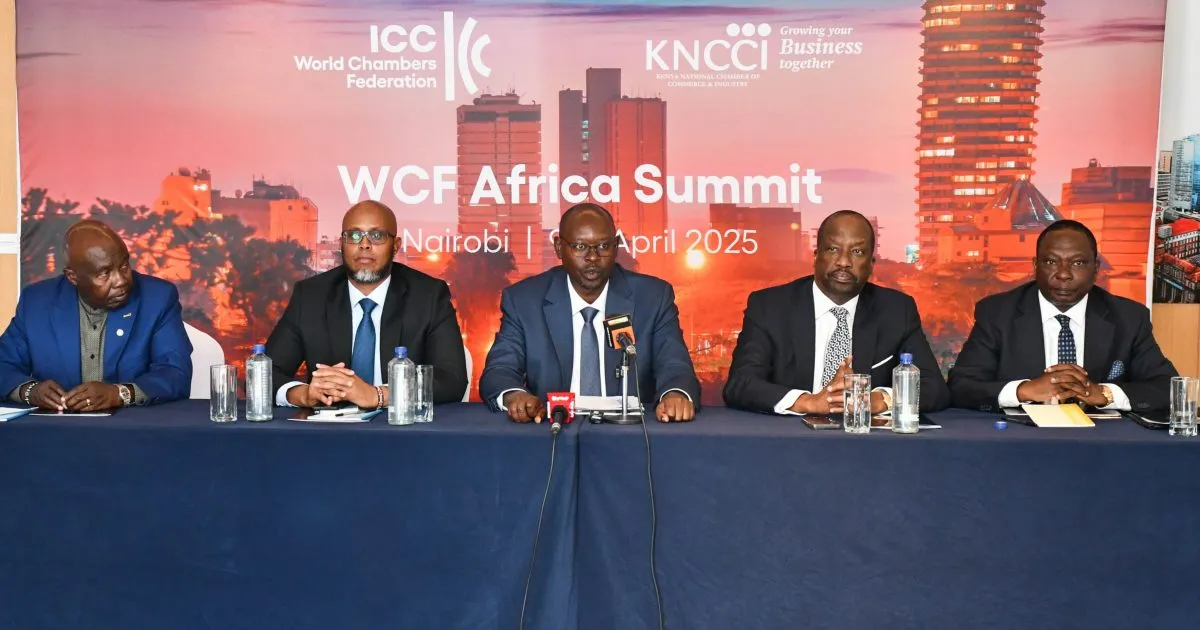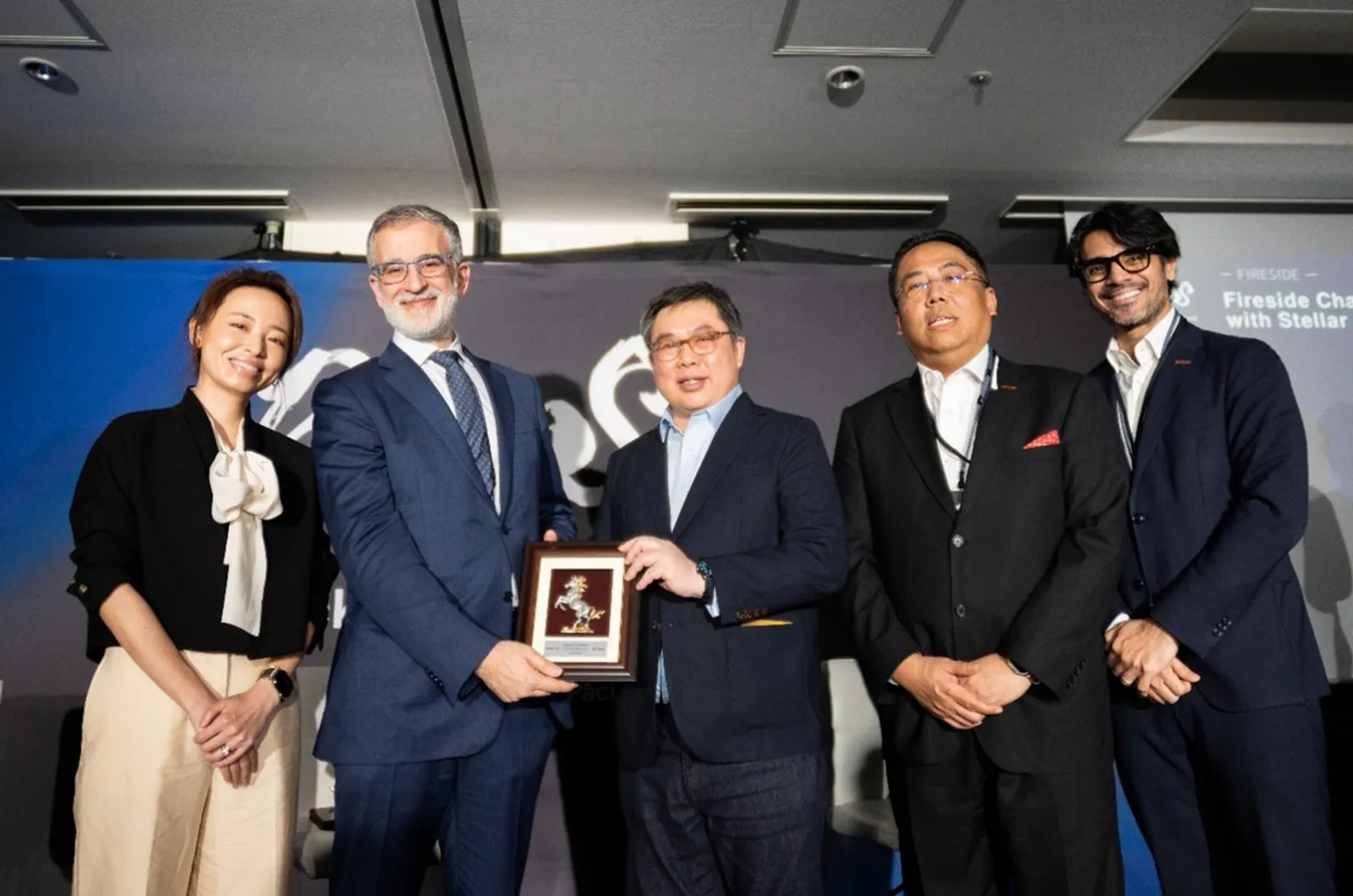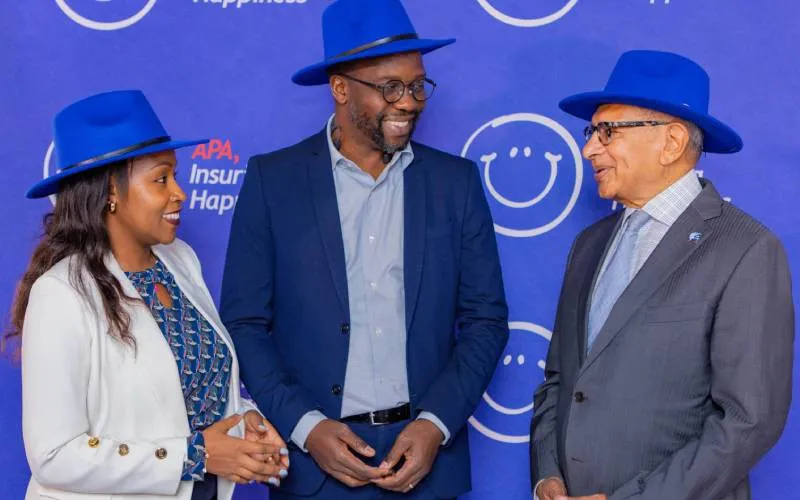In a grand demonstration of Africa’s evolving business landscape, the WCF Africa Summit 2025 was officially launched in Nairobi this Wednesday at the renowned Kenyatta International Convention Centre (KICC). With the presence of top government officials, members of the diplomatic corps, development partners, chamber leaders, and a vibrant cross-section of the business community, the summit has already set the stage for a transformative dialogue on African trade, investment, and sustainable development.
Drawing over 4,500 participants and hosting 350 exhibitors from more than 70 countries, the three-day event—spanning April 9-11, 2025—is poised to spotlight the critical role that African chambers of commerce play in spurring inclusive and sustainable growth across the continent. With an agenda that includes keynote addresses, panel discussions, and interactive workshops, the summit is an ambitious attempt to harness the collective power of Africa’s business leaders in a market fueled by the African Continental Free Trade Area (AfCFTA).
Bridging Borders: Showcasing Cross-Border Trade and Regional Value Chains
At the heart of the summit’s focus is the theme of cross-border trade. Mustafa Ramadhan, Vice President of the Kenya National Chamber of Commerce and Industry (KNCCI), underscored that the event is an opportunity for African businesses to showcase success stories of overcoming borders. By sharing experiences on how companies have effectively leveraged the AfCFTA to break down traditional barriers, the summit illustrates the transition toward a more integrated and competitive regional market.
Cross-border trade has long been hampered by regulatory, infrastructural, and logistical challenges. However, with the AfCFTA now in full swing, businesses are beginning to reap the benefits of a more unified market. The summit is particularly timely as it coincides with global movements towards digitalization and efficiency, with many companies embracing innovative practices such as digital invoicing, blockchain-based verification, and mobile banking solutions to streamline operations.
Not only will the participants witness firsthand how African businesses are creating regional value chains, but they will also have access to strategic insights and networking opportunities that could accelerate their entry into new markets. The success of cross-border trade in Africa has far-reaching implications for the continent’s GDP growth and its ability to compete on a global scale.
Kenya as Africa’s Diplomatic and Economic Hub
Dr. Erick Rutto, President of KNCCI, emphasized during his address that the summit is a platform to showcase Kenya’s unique business potential. Positioned at the crossroads of traditional trade and modern innovation, Kenya has steadily emerged as a gateway to the African market. Nairobi, in particular, is leveraging its strategic location, robust infrastructure, and a rapidly evolving digital economy to cement its status as a financial and diplomatic hub.
Speaking on behalf of Nairobi Governor Johnson Sakaja, Dr. Anastasia Nyalita, the CEC for Business and Hustler Opportunities, highlighted Nairobi’s readiness for the economic transformation that lies ahead. “Our city is not just a regional centre for business; it’s becoming the nerve centre where innovation meets opportunity,” she said. This transformation is driven by public–private partnerships and significant investments in technology and infrastructure that continue to bolster the city’s economic landscape.
As one of Africa’s most vibrant cities, Nairobi offers a favorable environment for investors seeking robust returns in emerging markets. Its dynamic business environment, supported by government-led initiatives for economic transformation, provides an ideal setting for the launch of an event as important as the WCF Africa Summit.
Tapping into a Market of 1.3 Billion Consumers
A key message echoed throughout the summit is the tremendous potential of the AfCFTA to consolidate a market of 1.3 billion consumers with a combined GDP of approximately $3.4 trillion. Abubakar Hassan Abubakar, Principal Secretary for Investment Promotion, stressed that this market surge has attracted a significant wave of global investor interest in African opportunities. He underscored Kenya’s strategic position as the perfect entry point for investors wishing to tap into the burgeoning East African market and the broader continent.
This massive market potential is a game-changer. With the AfCFTA implementation, businesses across Africa are expected to benefit from reduced tariffs, simplified customs procedures, and harmonized regulatory frameworks. These reforms are not only expected to stimulate intra-African trade but also empower African businesses to scale operations, innovate faster, and compete more effectively on the global stage.
Moreover, the summit sheds light on the potential of digital transformation across Africa. The convergence of digital technology with traditional commerce is opening avenues for new business models, which in turn promotes more efficient market access. This shift towards digital commerce is essential to unlock the latent potential in many of Africa’s underserved and underbanked communities.
Strategic Partnerships and Policy Frameworks
Representing Prime Cabinet Secretary Musalia Mudavadi, Foreign Affairs Principal Secretary Dr. Korir Sing’oei expressed that hosting the WCF Africa Summit is a strategic opportunity for Kenya to showcase itself as Africa’s premier investment destination. Dr. Sing’oei stressed that the summit would provide policymakers and business leaders with a unique platform to strengthen policy frameworks, attract more investment, and enhance Africa’s competitiveness in the global marketplace.
Government officials emphasized the importance of regulatory reforms that not only ease business operations but also safeguard consumer interests. In the fast-evolving global business environment, a robust and dynamic policy framework is essential to drive sustainable development. The summit thus presents an opportunity for dialogues between private sector leaders and policymakers aimed at crafting policies that reflect the realities of a digitized economy.
Participants also discussed the need for innovative financing solutions, public–private partnerships, and enhanced corporate governance measures. These topics are expected to be further explored in the breakout sessions and expert panels during the summit. With increasing global competition, it is more critical than ever that African nations work together to create a conducive environment for investment and trade.
Addressing Global Challenges Amidst Regional Opportunities
While the summit is a beacon of opportunity, it also comes at a time when global economic challenges continue to ripple across markets. Amid the excitement, some recent headlines have served as a stark reminder of the hurdles that lie ahead. For example, issues such as ongoing trade disputes, allegations of bribery involving high-level government officials, and the fluctuating fortunes of major global brands have all added layers of complexity to the international investment climate.
In a similar vein, market dynamics have been affected by geopolitical tensions and aggressive economic policies in other parts of the world. For instance, Trump’s latest tariffs, which have deepened the global trade war in previous months, underscore the persistent uncertainties in the international trade arena. Similarly, the turbulent performance of major companies like Tesla—faced with a sharp decline in quarterly sales amid backlash against its CEO—demonstrates that even the most globally recognized brands are not immune to these headwinds.
However, these challenges also underscore the importance of initiatives like the WCF Africa Summit. At its core, the event is designed to generate solutions and foster collaboration to tackle both regional and global obstacles. By bringing together stakeholders from across the political and business spectrum, the summit aims to harness diverse perspectives and innovative strategies that can drive resilience in the face of global economic volatility.
A Convergence of Ideas and Innovation
One of the most anticipated aspects of the WCF Africa Summit 2025 is its promise to be a melting pot of ideas and innovations. With more than 350 exhibitors showcasing cutting-edge products and services, the event offers a first-hand look at the technological advances that are reshaping business operations across Africa. From digital payment platforms and blockchain technology to advanced supply chain solutions and smart logistics, the summit is set to be a showcase of how technology is driving efficiencies and transforming industries.
Exhibitors are expected to highlight innovations that address critical challenges such as infrastructure deficits, energy scarcity, and data security—all factors that continue to hinder economic growth in several African markets. By facilitating partnerships between tech innovators and traditional industry players, the summit is paving the way for transformative solutions that can spur widespread development across the continent.
The integration of technology into traditional business models is a recurring theme at the summit. Across multiple sessions, experts have discussed the importance of digital literacy, the need for robust cybersecurity measures, and the potential for artificial intelligence and big data analytics to revolutionize decision-making processes. These discussions are particularly significant as African markets continue to embrace technology at an unprecedented pace, driven by both consumer demand and entrepreneurial ambition.
Empowering Small and Medium-Sized Enterprises (SMEs)
While the summit attracts large-scale investors and established business leaders, it also pays keen attention to the needs of small and medium-sized enterprises (SMEs). SMEs represent the backbone of most African economies, playing a crucial role in job creation and economic diversification. During the summit, special sessions will focus on the unique challenges faced by these enterprises, including access to financing, technology adoption, and navigating a complex regulatory environment.
Government representatives, including Abubakar Hassan Abubakar and Dr. Korir Sing’oei, highlighted initiatives that are aimed at creating more inclusive economic opportunities. These initiatives include streamlined business registration processes, incentives for tech-driven startups, and partnerships with international financial institutions to ease credit constraints. By addressing these areas, the summit aims to foster an ecosystem where SMEs can thrive, thereby driving grassroots economic growth across Africa.
For many small business owners, events like the WCF Africa Summit offer more than just inspiration—they provide practical solutions and networking opportunities that can lead to meaningful, long-term partnerships. The summit’s commitment to inclusivity is evident in its programming, with dedicated workshops and mentorship sessions designed to empower entrepreneurs with the tools they need to succeed in an increasingly digitalized economy.
Looking Towards a Sustainable and Inclusive Future
At the core of the WCF Africa Summit 2025 is a forward-looking vision: to create a sustainable and inclusive economic environment that benefits all segments of society. As African nations and businesses work together to harness the transformative potential of trade and technology, sustainability and inclusivity remain paramount. Discussions at the summit have stressed that economic growth should not come at the expense of social equity or environmental stewardship. Instead, the goal is to foster development that is resilient, balanced, and sustainable in the long term.
Experts have pointed out that a sustainable future for Africa depends not only on economic policies but also on investments in education, healthcare, and environmental management. The summit has spurred conversations around green technologies, renewable energy projects, and sustainable business practices, which are essential as Africa seeks to build resilient economies capable of weathering the challenges of the 21st century.
Inclusivity, too, is a recurring theme. By providing a platform for dialogue among diverse stakeholders—from multinational corporations to local entrepreneurs—the summit is helping to ensure that the benefits of economic growth are widely shared. The deliberate inclusion of voices from various sectors underscores a commitment to building an economic future that leaves no one behind.
Conclusion: A Catalyst for Change in Africa’s Economic Landscape
The launch of the WCF Africa Summit 2025 in Nairobi is more than a ceremonial event—it is a clarion call for action and collaboration across the continent. In a world where geopolitical uncertainties and global market fluctuations often dominate headlines, the summit stands as a beacon of opportunity. It is a testament to the belief that Africa is not only ready to participate in the global economy but also to lead through innovation, resilience, and unity.
By bringing together over 4,500 participants and 350 exhibitors from more than 70 countries, the summit provides a rich tapestry of ideas, strategies, and innovations that will likely drive Africa’s economic agenda in the years to come. As government officials, business leaders, and innovators converge at the KICC, they are not just discussing policy—they are setting the stage for a transformative era in African commerce.
This gathering serves as a potent reminder of the transformative potential of pan-African cooperation. It demonstrates how deliberate, coordinated efforts can turn challenges into opportunities and create new pathways for prosperity. Whether through enhanced cross-border trade, innovative digital solutions, or strategic investment in SMEs, the WCF Africa Summit is poised to be a catalyst for profound change.
For Kenya, hosting such an influential event solidifies its reputation as a key gateway into the African market. For Africa as a whole, it signals a renewed commitment to sustainable and inclusive growth—one that leverages the continent’s vast human capital, technological innovations, and untapped market potential.
As the summit unfolds over the next few days, it is expected that the discussions, partnerships, and initiatives launched here will resonate far beyond the walls of the KICC, paving the way for a new chapter in Africa’s economic journey. The vision is clear: a future where African businesses not only integrate into the global marketplace but also redefine it, contributing to a more prosperous, equitable, and sustainable world.
Ready to take your career to the next level? Join our dynamic courses: ACCA, HESI A2, ATI TEAS 7 , HESI EXIT , NCLEX – RN and NCLEX – PN, Financial Literacy!🌟 Dive into a world of opportunities and empower yourself for success. Explore more at Serrari Ed and start your exciting journey today! ✨
photo source: Google
By: Montel Kamau
Serrari Financial Analyst
10th April, 2025
Article, Financial and News Disclaimer
The Value of a Financial Advisor
While this article offers valuable insights, it is essential to recognize that personal finance can be highly complex and unique to each individual. A financial advisor provides professional expertise and personalized guidance to help you make well-informed decisions tailored to your specific circumstances and goals.
Beyond offering knowledge, a financial advisor serves as a trusted partner to help you stay disciplined, avoid common pitfalls, and remain focused on your long-term objectives. Their perspective and experience can complement your own efforts, enhancing your financial well-being and ensuring a more confident approach to managing your finances.
Disclaimer: This article is for informational purposes only and does not constitute financial advice. Readers are encouraged to consult a licensed financial advisor to obtain guidance specific to their financial situation.
Article and News Disclaimer
The information provided on www.serrarigroup.com is for general informational purposes only. While we strive to keep the information up to date and accurate, we make no representations or warranties of any kind, express or implied, about the completeness, accuracy, reliability, suitability, or availability with respect to the website or the information, products, services, or related graphics contained on the website for any purpose. Any reliance you place on such information is therefore strictly at your own risk.
www.serrarigroup.com is not responsible for any errors or omissions, or for the results obtained from the use of this information. All information on the website is provided on an as-is basis, with no guarantee of completeness, accuracy, timeliness, or of the results obtained from the use of this information, and without warranty of any kind, express or implied, including but not limited to warranties of performance, merchantability, and fitness for a particular purpose.
In no event will www.serrarigroup.com be liable to you or anyone else for any decision made or action taken in reliance on the information provided on the website or for any consequential, special, or similar damages, even if advised of the possibility of such damages.
The articles, news, and information presented on www.serrarigroup.com reflect the opinions of the respective authors and contributors and do not necessarily represent the views of the website or its management. Any views or opinions expressed are solely those of the individual authors and do not represent the website's views or opinions as a whole.
The content on www.serrarigroup.com may include links to external websites, which are provided for convenience and informational purposes only. We have no control over the nature, content, and availability of those sites. The inclusion of any links does not necessarily imply a recommendation or endorsement of the views expressed within them.
Every effort is made to keep the website up and running smoothly. However, www.serrarigroup.com takes no responsibility for, and will not be liable for, the website being temporarily unavailable due to technical issues beyond our control.
Please note that laws, regulations, and information can change rapidly, and we advise you to conduct further research and seek professional advice when necessary.
By using www.serrarigroup.com, you agree to this disclaimer and its terms. If you do not agree with this disclaimer, please do not use the website.
www.serrarigroup.com, reserves the right to update, modify, or remove any part of this disclaimer without prior notice. It is your responsibility to review this disclaimer periodically for changes.
Serrari Group 2025
















